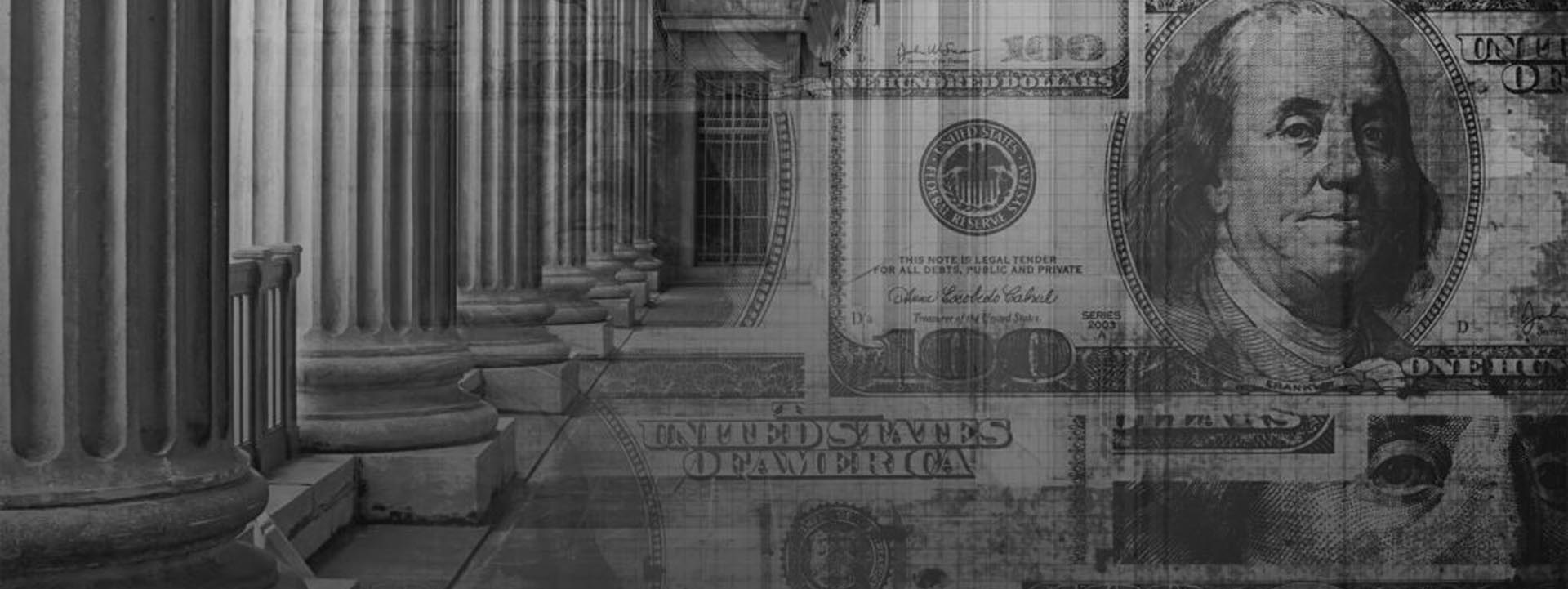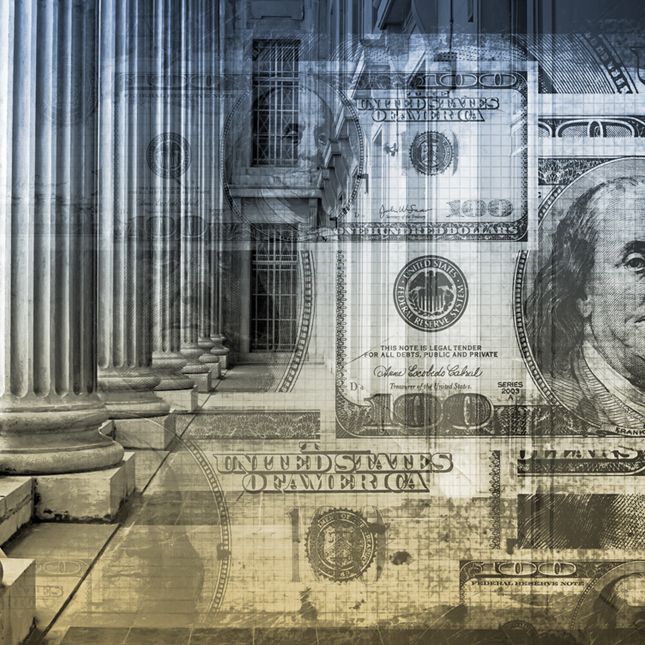
Bankruptcy Law
Utah Bankruptcy Attorney
Is Bankruptcy Right For You?
Struggling to make ends meet? Doing your best to pay your monthly bills but continuing to fall short? This is a common problem in the current financial climate. Let us help you examine your finances and determine if filing bankruptcy is a viable option for you.
Bankruptcy is about financial death and financial rebirth. Bankruptcy is the great American story rewritten. We're a nation of debtors. -Elizabeth Warren
Should I file a Chapter 13 or Chapter 7?
Choosing between a Chapter 7 and Chapter 13 depends on the types of debt you have and the amount of money that you make. If you’re income is steady and too high for a Chapter 7, you will want to file a Chapter 13 Bankruptcy. Also, many advantages come with filing a Chapter 13 Bankruptcy in Utah. The best advantage is the opportunity homeowners have to save his/her home from foreclosure through a payment plan to repay late fees, or using actions such as short sales, deed in lieu of foreclosure, or loan modification. When someone files a Chapter 7 Bankruptcy, his/her assets and properties are liquidated, in a Chapter 13 Case debtors are given the opportunity to reorganize their debt and pay all or part back over time.
It is important to make sure bankruptcy is the right choice for you.
If you’re considering filing bankruptcy, first call Utah Attorney Donald S. Reay for a Free Case Review.
FILING BANKRUPTCY: Chapter 7 vs. Chapter 13
- All
- Chapter 13 Bankruptcy
- Chapter 7 Bankruptcy
Chapter 13 Bankruptcy
Frequently Asked Questions
GENERAL BANKRUPTCY QUESTIONS
How Can Filing Bankruptcy Help Me?
Filing bankruptcy may allow you to stop foreclosures or repossessions. It can allow you to challenge creditors accusing you of owing more money than you really do. Filing bankruptcy may allow you to stop wage attachments, debt collection, and similar actions. It can also help you eliminate the requirement to pay most or even all of your debts. Filing bankruptcy can help give you a financially fresh start and a second chance.
What Impact Will Filing Bankruptcy Have on My Spouse?
Your spouse may or may not have to file bankruptcy with you. Obligations are separated into individual and marital. If the debt lies under marital obligations, creditors may be able to go after a spouse. Most find it easier to file a joint bankruptcy.
Do I Need a Lawyer to File Bankruptcy?
You do not need a bankruptcy attorney. However the bankruptcy process is not simple and we highly encourage you to take advantage of our skilled bankruptcy attorneys.
What Are the Benefits of Bankruptcy?
Bankruptcy has many benefits including helping to eliminate creditors and collection calls. It helps make debt easier to manage and gives you a fresh start.
What CAN’T Filing Bankruptcy Do?
Filing bankruptcy cannot solve all your financial problems, and may not be the right step for everyone. Filing bankruptcy cannot dissolve debts that happen after bankruptcy has been filed. Filing bankruptcy cannot protect the co-signers on your debts. Filing bankruptcy cannot discharge child support, alimony, criminal fines, or recent taxes. Finally, filing for bankruptcy cannot eliminate debt from “secured creditors”.
What does a Bankruptcy Trustee Do?
A bankruptcy trustee is appointed by the bankruptcy court to liquidate your eligible property and assets. This person is qualified, impartial, and fair.
POST BANKRUPTCY ISSUES
So You Filed Bankruptcy…..Now What?
Many people think that once they file bankruptcy their credit will be ruined forever and it will be held against them. This stigma can cloud the future with confusion and cause you to be overwhelmed. Although it takes self-master and discipline, it is possible to get your credit back on track and get you to where you want to be.
When you file bankruptcy you will be required to take credit counseling. They might provide you with advice to change your lifestyle.
Change Your Lifestyle
Maybe that means staying home instead of taking that vacation, maybe it means not buying that new car you wanted, or maybe it even means simply not going out to dinner as much. Your life is your own and bankruptcy gives you a fresh start to keep it your own.
Make a budget, and stick to it! Don’t stray outside of your budget for any reason. Many people file multiple bankruptcies because they simply can’t handle sticking to the budget they have set for themselves.
Rebuilding Your Credit
Although it may be slow and difficult, rebuilding your credit is not impossible. Making steady payments on secured credit cards can slowly build your credit up again. This may take some effort, but it is possible.
Credit Card Payments
HELPFUL TIPS
COMMON MISTAKES PEOPLE MAKE BEFORE FILING BANKRUPTCY
Borrowing Money Against a Home:
Under Homestead Laws many debtors receive exemptions of $20,000 to $40,000 on his/her primary residence. Equity in a home can be claimed as exempt and remain in tact.
Borrowing Money Against a Retirement Fund:
In Utah, 401k, IRA, or other similar retirement plans are exempt from creditors during a bankruptcy. Therefore, you can file bankruptcy and still keep everything in your retirement fund. Borrowing against a retirement fund can cause considerable amounts of trouble in the future and may not be worth the quick fix it originally provides.
Attempting to Protect Assets By Transferring Them to Another Person:
Many people believe they can protect their assets if they transfer them to another name. If this happens within a year of filing bankruptcy, this act is considered fraud and trustees can take the assets from whomever they were given to. Any discharges will be denied. Many assets are exempt from creditors anyway.
PROPERTY EXEMPTIONS
What Property Do I Get to Keep?
The most commonly claimed exemptions in Utah are vehicle exemptions and homestead exemptions.
What is a Vehicle Exemption?
Vehicle exemptions are given to each individual for one vehicle under $2,500. If you and a spouse share a vehicle you can combine your exemptions together for one vehicle under $5,000. If your vehicle’s equity is less than the exemption amount then you would be able to keep it. Vehicle exemptions may work for motorcycles if they are the primary means of transportation.
What is a Homestead Exemption?
The Homestead Exemption is applied to home equity. You can compute home equity by taking the fair market value of your home and deducting all outstanding mortgages and loans against the property. Debtors can claim a $20,000 homestead exemption for their primary residence, and $5,000 for any others. Couples can receive $40,000. Therefore, if your equity exceeds the amount of your exemption, you might want to consider a Ch. 13 Bankruptcy so you can keep your home. If your equity does not exceed the amount of the homestead exemption, you may file a Ch. 7 Bankruptcy and not lose your home.
Am I Entitled to Any Other Exemptions?
Under Utah Code you are entitled to the following:
Personal Property: Animals, books, and musical instruments, equal to or less than $500, Artwork of or done by a family member, eds, and bedding, burial plot, carpet, clothes (not furs or jewelry), Dining and kitchen tables and chairs equal to or less than $500, food storage for 12 months, one freezer, one fridge, health aids, heirlooms, equal to or less than $500, one microwave oven, one sewing machine, one sewing machine, one stove, necessary furnishing for one household equal to or under $500, one washer and dryer, building/construction materials.
For other exemption details see Utah Code Section 78B-5-505
STUDENT LOANS
Since 2005 student loans have become more difficult to discharge than they have been in the past and cannot be discharged through Ch.7 Bankruptcy or Ch. 13 Bankruptcy. The only way student loans can be discharged is through Undue Hardship. This must be ruled by the court.
What is Undue Hardship?
Undue hardship means that the debtor will not be able to maintain a minimal standard of living and pay off the loan. To discharge student loans, the debtor must prove this is so.
SCRA (SERVICEMEMBER’S CIVIL RELIEF ACT
The SCRA gives added protection to those in active military duty.
What Extra Protection Can the SCRA Provide?
- The SCRA can stop garnishments, judgments, and attachments.
- The SCRA can stop proceedings where the serviceman has notice of the proceedings.
- The SCRA can protect servicemen
- Those protected by the SCRA can break leases if military duty caused a breach in contract. In some cases, this protection can even cover co-signers as well.
Capitalism without bankruptcy is like Christianity without hell. -Frank Borman



